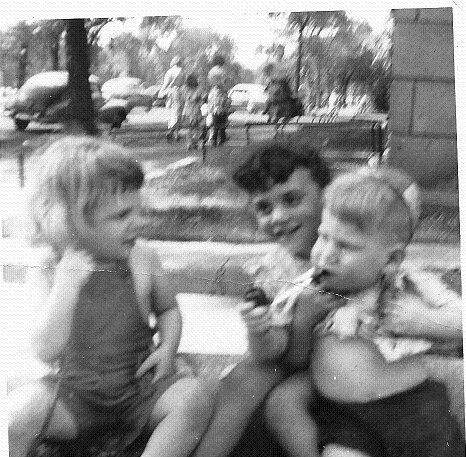There is a lot of Profit and Loss record keeping in the business of Life:
Primeval gain- entering this world to experience all that it can offer.
Ultimate loss- when the offer has been permanently voided- Death. There is wishful thinking that we drift into a better place of opportunity from which to profit rather than- shudder the thought- go to that permanent place of torturous punishment
We learned to walk and talk before our memory capabilities were set. No one remembers his first steps or first words. No one can recognize events in pictures in which they appeared that occurred- let’s say- before the age of four.
We are at a loss to recall much of what happened in kindergarten but gained so much from the elementary bits of knowledge and social graces that were taught there. Later on we cluttered our brains with algebraic equations and geometrical patterns but were at a loss to figure why it would ever be necessary to use.
We gained in our youth by building our bodies strong with exercise and the excess energy that came with it but felt the slow loss of motor skills and motivation to move about many years later.
We made new friends on a daily basis in school and saw them disappear out of our life once we graduated. Now and then someone told us, “did you hear so and so passed away?†and immediately thought of only the nice things that happened between us.
As time kept ticking away when past our prime, we gained in weight but lost in height, a cruel trick of the symmetry of life.
We gained with new discoveries of modern conveniences but lost in forgetting how do things the old fashioned way.
The greatest irony saw our memories of times past, of things we did so many years earlier come more into focus than what we did four hours earlier.
And we knew who you were but just couldn’t remember your name.
As our liabilities increased to equal our assets, our equity disappeared. Then, one day they said it was time to go and we couldn’t remember any good reason to say no.
 Since then, we got stalemated in Korea in the early 1950’s, ran away from Viet Nam twenty years later when we lost the guts to do it correctly but did win the battle in Grenada in 1983. I think, though, it was used as a military recruitment training exercise video. Let’s see- in the early 1990’s we moved the battlefront to the Middle East and quit when the politicians yelled that it was time to come in and eat. Conflict was renewed in the past decade in Iraq and Afghanistan with similar results. I think both of those had to do with having a Bush President.
Since then, we got stalemated in Korea in the early 1950’s, ran away from Viet Nam twenty years later when we lost the guts to do it correctly but did win the battle in Grenada in 1983. I think, though, it was used as a military recruitment training exercise video. Let’s see- in the early 1990’s we moved the battlefront to the Middle East and quit when the politicians yelled that it was time to come in and eat. Conflict was renewed in the past decade in Iraq and Afghanistan with similar results. I think both of those had to do with having a Bush President.
